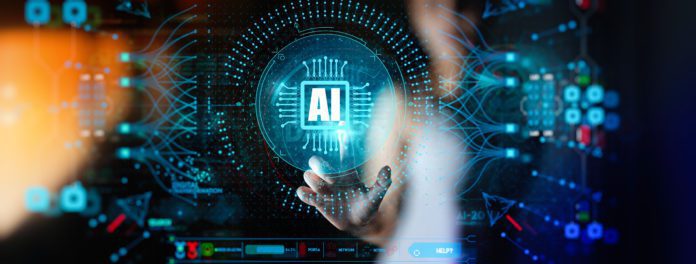artificial intelligence (AI) is impacting jobs across all strata of business and IT.
AI is being incorporated into customer relationship management (CRM), enterprise resource planning (ERP), business intelligence (BI), analytics, cybersecurity, marketing, sales, management, and more.
Here are five major trends in AI jobs the market is seeing:
See more: The Artificial Intelligence (AI) Market
1. AI Shifts All Roles
AI is shifting all other roles or at least a great many of them.
“There isn’t a shift in AI jobs as much as AI is causing a shift in other roles,” said Patrick Conte, chief commercial officer at Opsani.
Conte gave the example of cloud application optimization, where AI is allowing DevOps engineers to focus on development and testing and not as much on the size of workloads.
AI can find the right size, or the service-level objectives, of an application, where a DevOps engineer or team might just request a large footprint that will hold the app, without worrying about over-provisioning and overspending. In this case, AI and its branch technology machine learning (ML) can suggest with high accuracy the size of the workload (CPU, memory, replicas, etc.) and allow the DevOps team to build, test, and send the workload to the site reliability engineering (SRE) team.
2. Site Reliability Engineering Roles
AI and ML are bringing about big changes in SRE roles. By using ML to find an optimal set of performance settings in the production phase, the SRE team does not have to take time away from preparing apps for production to worry about tuning them.
Since the number of permutations of settings for an app or microservice with just three parameters (CPU, memory, replicas) is in the trillions, it requires a system that can operate at machine speed to do the testing and experiments necessary to actually find the optimal combination of values for those parameters.
“Humans can only guess at the optimal, whereas AI and ML can find it at a faster speed and more reliably,” Conte said. “This doesn’t replace humans but frees them up to do their higher-value jobs.”
See more: Artificial Intelligence (AI) Trends
3. Cybersecurity and AI
Cybersecurity engineers scored highest in salary growth in 2020 according to the “Tech Salary Report” from jobs website Dice. The report highlights skills like cloud, AI, ML, and cybersecurity as being in high demand.
While tech salaries overall grew by 3.6% in 2020, cybersecurity analyst salaries surged by 16.3%. Rates have risen again in 2021. And roles are evolving that harness AI in tandem with standard cybersecurity tools.
“The widespread adoption of remote work led to increased vulnerabilities, providing hackers with unprecedented opportunities to attack and breach defenses,” said Art Zeile, CEO of DHI Group, a provider of AI-powered career marketplaces that focus on technology roles.
“In response, the need for skilled technologists to identify and plug these security holes saw cybersecurity analysts enjoy the largest growth in salary of any occupation.”
4. AI in Manufacturing
Many different verticals are big on AI. And manufacturing is moving into the forefront.
An MIT survey revealed that about 60% of manufacturers are already using AI. The two most common use cases for AI in manufacturing are maintenance and quality control.
For instance, instead of people going around equipment and assembly lines at certain time intervals, AI is used to process data coming in from sensors to monitor factors like oil levels, debris on filters, equipment health, performance, vibration, emissions, and more. AI then points maintenance personnel toward the equipment and components that need attention. This saves time and money. And people who can combine the AI and maintenance disciplines should find their services wanted in many quarters.
“Manufacturing data is a good fit for AI/machine learning,” said Cem Dilmegani, founder of AI Multiple, an AI analyst firm. “Manufacturing is full of analytical data, which is easier for machines to analyze.”
Similarly, AI in quality control can help inspectors know what to inspect, where to inspect, and how to trace QC issues back to their root cause.
5. AI in Robotics
Robotics is another hot market. And it is making heavy use of AI.
Rob Enderle, an analyst at Enderle Group, said the autonomous robotic market alone is worth around $103 billion this year. He predicts that it will more than double by 2025 to $210 billion.
Where jobs will be plentiful will be in areas such as robotic process automation (RPA). When integrated with AI, RBA helps companies deal with high-volume, repeatable tasks far more efficiently.
Yes, some tasks will be lost to robots. But plenty of people will be needed to service the robots, harness AI to increase performance, reduce robotic errors, and write software that can incorporate AI, RBA, and plant systems.



